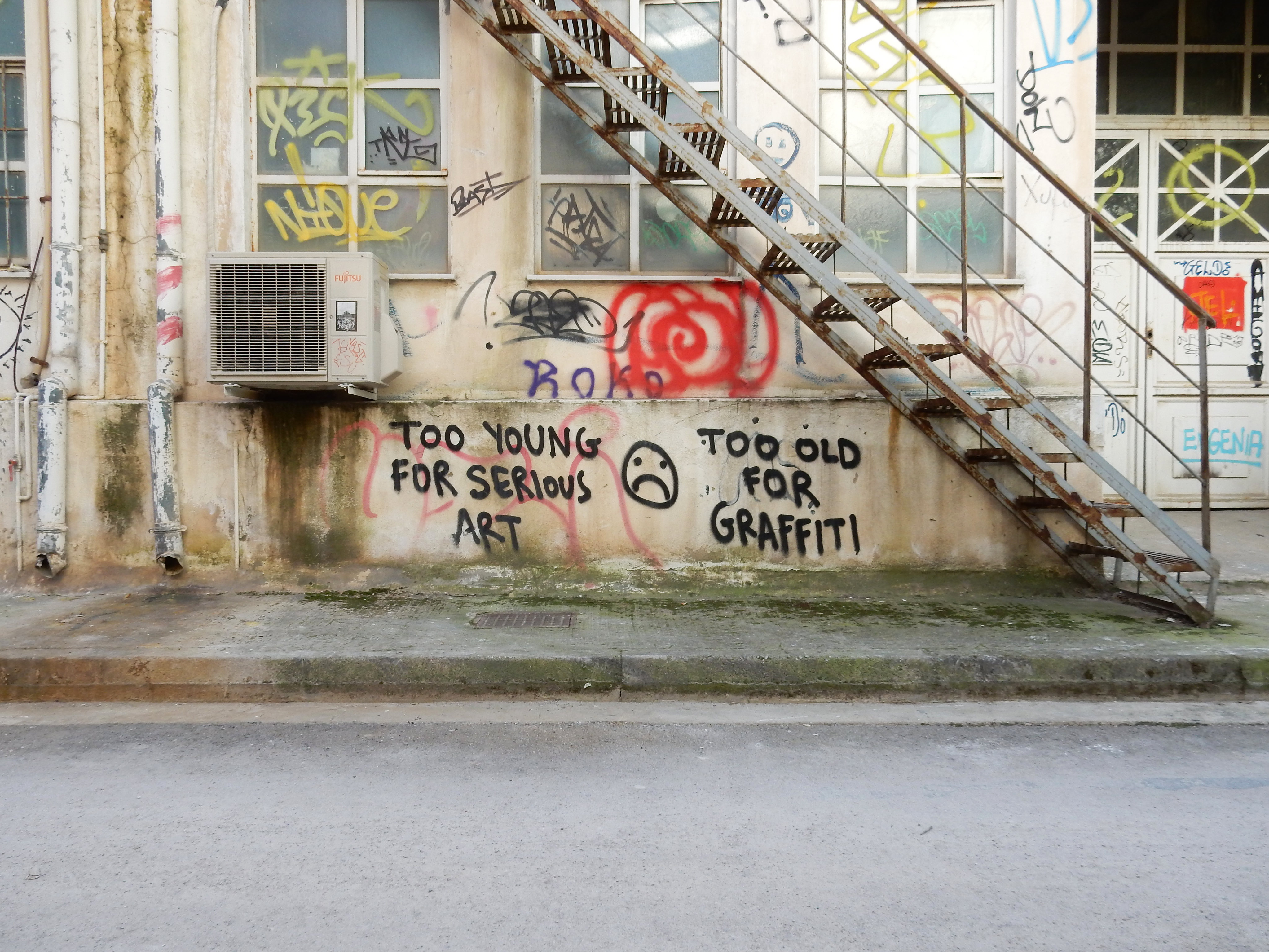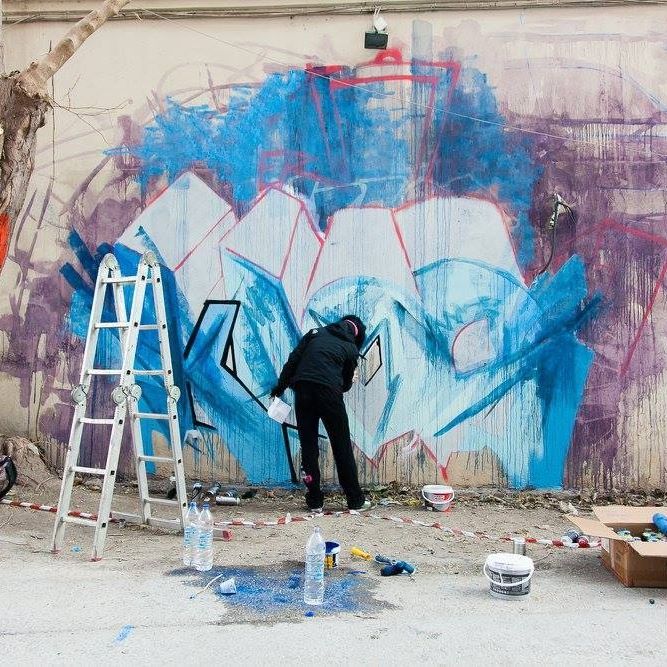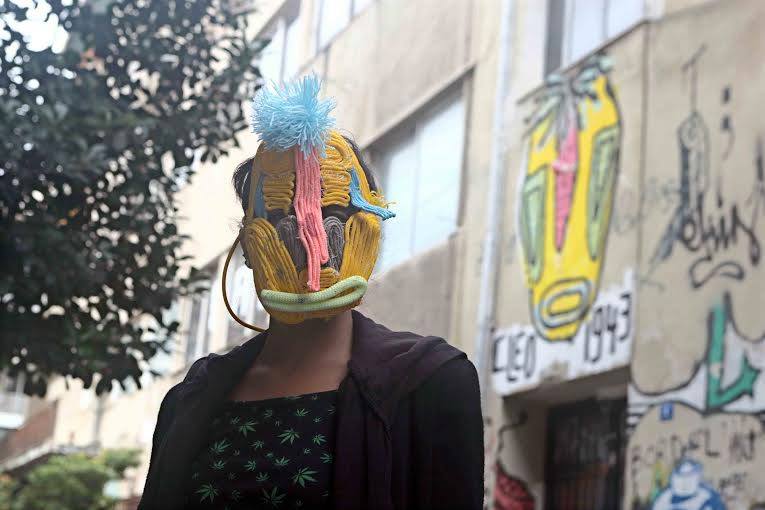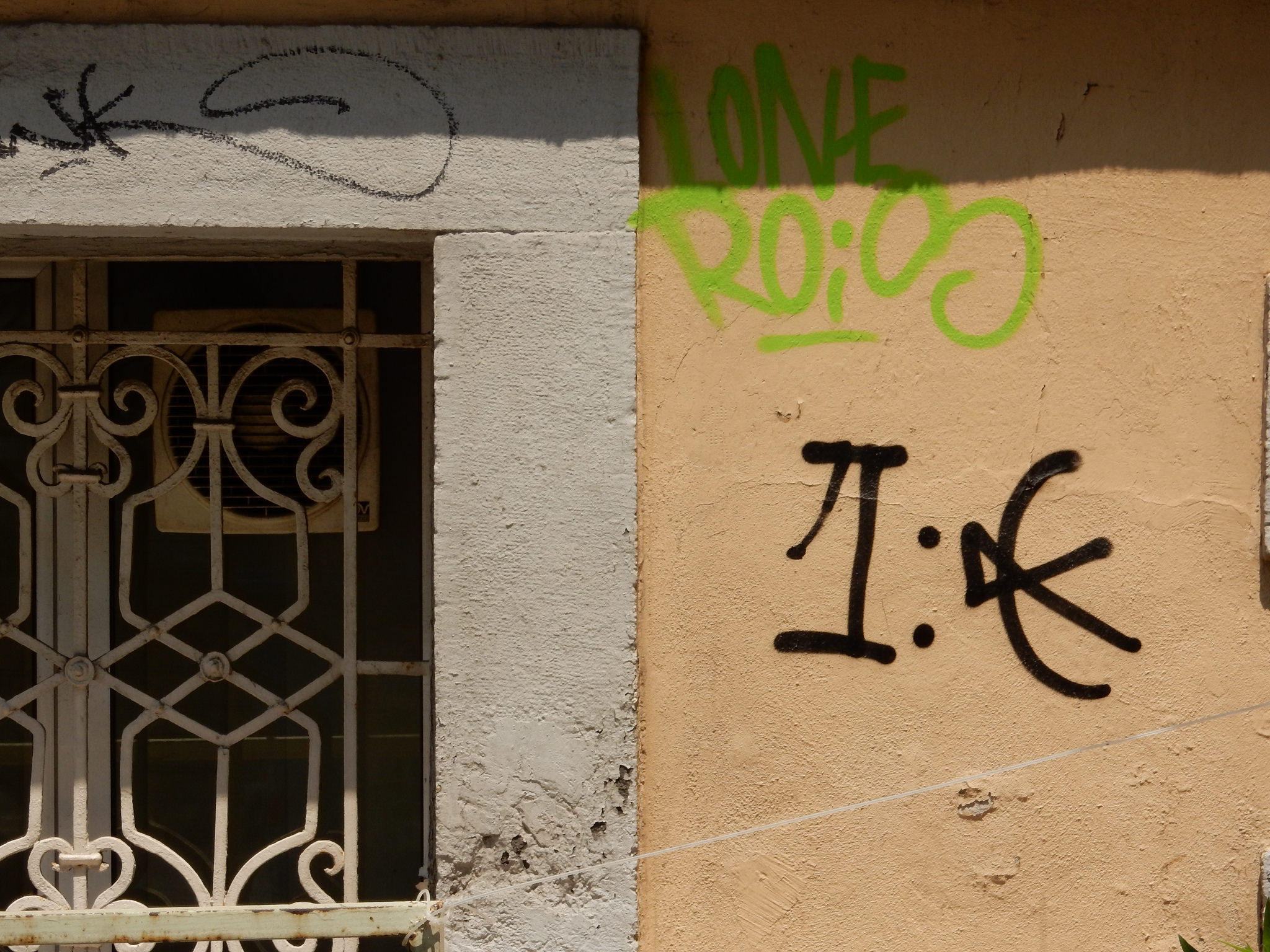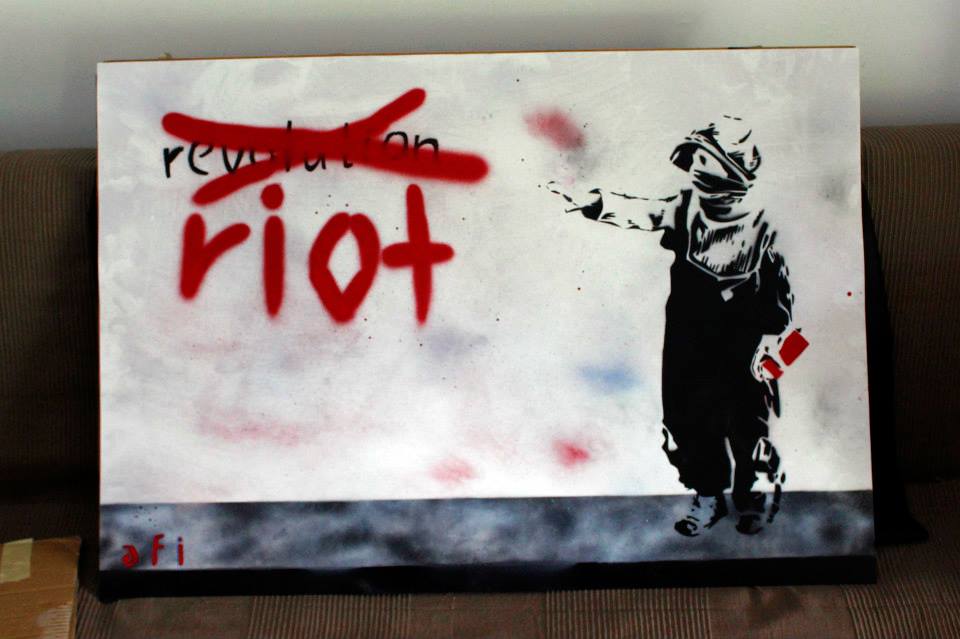Bleeps—perhaps the most prolific political street artist in Athens at this moment—has been continuously creating complex artworks engaging with the crisis and the socio-political situation in Greece. His work has been prominently featured in media reports on the crisis but is also frequently subjected to vandalism. Find his manifesto and more information on www.bleeps.gr or check out some of his ideas on the crisis in the short documentary The Wake Up Call.
When did you first get involved in graffiti/street art and what was your initial motivation? How did your political understanding of it evolve and how did you arrive at the particular style you use now?
I have never been involved with the so called graffiti scene as I am not familiar with lettering, bombing and other techniques identifying this genre.
My first experimentations in the public space started occurring while at school but these were words and quotes, nothing more. I wouldn’t describe that as becoming active in the genre. Actually the era in UK stimulated me. It was the period of the street art boost in Bristol back in 2003-4.
My initial motivation was the need to express thoughts using images in the street but not not creating a counter propaganda. Rather, I would describe it an institution of the public sphere through “borrowing” the scenery and spreading it in the internet. You see it was the beginning of the social network platforms and I had the idea to use them in order to raise dialogue with an extended audience.
Gradually I realized that what I was doing was a type of diary, my interpretation of the present filtered through my understanding of the “spirit of the land” as it is approached in phenomenology.
I am not considering thus myself to be close to any political ideology of the ones “offered” to people institutionally.
Regarding the “style” I wouldn’t suggest it is a form of materialization but a continuous quest which reaches a type of fulfillment but that simultaneously is never static. If you are referring to the “how” my latest work looked like I would say that it is not a result of meretricious attempt but the “best” way within my abilities to materialize an idea, a concept.
How would you describe your involvement in the Athens street art scene? Do you collaborate with other artists?
I have never actually been involved with the local scene in the way that I don’t understand what it means to be involved as such. Is it a matter of PR? Does it imply “hanging out” and occasionally creating along with other artists? In the end of the day what intrigues me is the “spirit of the land” the “genius loci” so in a way I am involved with that.
Io be honest I have created two or three times with other artists but that wasn’t interaction between works. These artists I am referring to are related to the more “politically sensitive” scene. I know the guys, I appreciate what they do and I consider them friends in a way.
I use certain colors not because I transform them as identification elements but because this is the way I imagine the works. In an era of radically raised problematic, stylistic ornamentation seems and superficial as far as it concerns me.
Many of your artworks are set against a characteristic blue background, tell me about the meaning of that.
There has been a number of works I used the blue back drop but in a vast number of others the “blue” becomes other elements and in the background abstract graphs appear, or pseudo-frames, inserts, objet trouvé etc.
The blue I use as backgrounds plays a part in the work. It empowers the image, it describes a transportation of familiar realities (Aegean Sea eg) to the urban environment embracing the work and instituting the surrounding space. This approach is general though and more appropriate is to discuss this element in each work individually.
If you conceptualize a piece, do you think of the place you want to put it up beforehand?
Usually what I do is I drive late hours around the areas I am interested in. This is a procedure that lasts for hours until I “discover” the surface which intrigues me.
Is street art your only political outlet or do you participate in or support other forms of activism?
I have been active since in the UK but there is a price when getting too “active” or radical and gradually I formed this type of activism in order to be efficient and and at the same time able to express my inner thoughts and analytical approach.
I was born and live in a low-mid class area. Every day life is activism here not because people are privileged with some sort of enlightenment but here you can see the impact of authoritarian imposition more intensely. The historical weakness is through the fact that the multitude is not mature yet to experience self-consciousness.
—
This interview was conducted via email in March 2013.
Questions by Julia Tulke.




